METHYLPHENIDATE SUSTAINED-ACTION, OSMOTIC - ORAL
PHONETIC PRONUNCIATION: (METH-il-FEN-i-date)
COMMON BRAND NAME(S): Concerta
GENERIC NAME(S): methylphenidate HCl
Uses
USES: This medication is used to treat attention deficit hyperactivity disorder - ADHD. It works by changing the amounts of certain natural substances in the brain. Methylphenidate belongs to a class of drugs known as stimulants. It can help increase your ability to pay attention, stay focused on an activity, and control behavior problems. It may also help you to organize your tasks and improve listening skills.
How to use METHYLPHENIDATE SUSTAINED-ACTION, OSMOTIC - ORAL
HOW TO USE: Read the Medication Guide provided by your pharmacist before you start taking methylphenidate and each time you get a refill. If you have any questions, ask your doctor or pharmacist. Take this medication by mouth with or without food as directed by your doctor, usually once daily in the morning. Taking this medication late in the day may cause trouble sleeping (insomnia). Swallow this medication with a full glass of liquid (8 ounces/240 milliliters). Do not crush or chew this medication. Doing so can release all of the drug at once, increasing the risk of side effects. Also, do not split the tablets unless they have a score line and your doctor or pharmacist tells you to do so. Swallow the whole or split tablet without crushing or chewing. Take this medication regularly to get the most benefit from it. To help you remember, take it at the same time each day. The dosage is based on your medical condition and response to treatment. Your doctor may direct you to gradually increase or decrease your dose. Also, if you have used it for a long time, do not suddenly stop using this drug without consulting your doctor. This medication may cause withdrawal reactions, especially if it has been used regularly for a long time or in high doses. In such cases, withdrawal symptoms (such as depression, suicidal thoughts, or other mental/mood changes) may occur if you suddenly stop using this medication. To prevent withdrawal reactions, your doctor may reduce your dose gradually. Consult your doctor or pharmacist for more details, and report any withdrawal reactions right away. When used for a long time, this medication may not work as well. Talk with your doctor if this medication stops working well. Though it helps many people, this medication may sometimes cause addiction. This risk may be higher if you have a substance use disorder (such as overuse of or addiction to drugs/alcohol). Take this medication exactly as prescribed to lower the risk of addiction. Ask your doctor or pharmacist for more details. Tell your doctor if your condition does not improve or if it worsens.
Side Effects
Precautions
Interactions
Overdose
Images
Reviews
Faq for METHYLPHENIDATE SUSTAINED-ACTION, OSMOTIC - ORAL
Methylphenidate Sustained-Action, Osmotic-Oral is a medication used to treat attention deficit hyperactivity disorder (ADHD). It is a long-acting form of methylphenidate, which helps to increase attention and decrease impulsiveness and hyperactivity in individuals with ADHD.
Methylphenidate Sustained-Action, Osmotic-Oral works by affecting certain chemicals in the brain that contribute to hyperactivity and impulsivity. It helps to improve focus and attention span in individuals with ADHD.
The dosage of Methylphenidate Sustained-Action, Osmotic-Oral will vary depending on the individual's age, weight, and response to the medication. It is typically taken once daily in the morning. The dosage should be determined by a healthcare professional.
Common side effects of Methylphenidate Sustained-Action, Osmotic-Oral may include loss of appetite, trouble sleeping, headache, stomach pain, and nervousness. Other, less common side effects may also occur. It is important to consult with a healthcare professional if any concerning side effects occur.
Methylphenidate Sustained-Action, Osmotic-Oral may interact with other medications, including monoamine oxidase inhibitors (MAOIs), antihypertensive drugs, and certain antidepressants. It is important to inform your healthcare provider about all medications you are taking to avoid potential interactions.
Methylphenidate Sustained-Action, Osmotic-Oral is not recommended for individuals with a history of glaucoma, motor tics, or a family history or diagnosis of Tourette's syndrome. It should also be used with caution in individuals with a history of drug or alcohol abuse. It is important to discuss any medical conditions or concerns with a healthcare professional before starting this medication.
Methylphenidate Sustained-Action, Osmotic-Oral can be used in children 6 years and older. However, the dosage and duration of treatment should be determined by a healthcare professional based on the child's needs and response to the medication.
Methylphenidate Sustained-Action, Osmotic-Oral is designed to provide extended release and usually lasts for around 8-10 hours. This allows for once-daily dosing to cover the school or work day. The exact duration may vary between individuals.
Methylphenidate Sustained-Action, Osmotic-Oral can be habit-forming if misused, but when used as prescribed by a healthcare professional, the risk is minimal. It is important to follow the prescribed dosage and not share the medication with others.
Warning
WARNING: Misuse or abuse of methylphenidate can result in serious (possibly fatal) heart and blood pressure problems. This medication can be habit-forming and should be used cautiously by people who have mental/mood disorders or a substance use disorder (such as overuse of or addiction to drugs/alcohol). Before using this medication, tell your doctor if you have a personal or family history of a substance use disorder. Do not increase your dose, use it more often, or use it for a longer time or in a different way than prescribed. Doing so may result in a decrease in the effect of this drug, drug dependence, or abnormal thoughts/behavior. Your doctor may monitor you for a while after the medication is stopped, especially if you have taken this drug for a long time or in high doses. (See also How to Use section.)
Disclaimer
IMPORTANT: HOW TO USE THIS INFORMATION: This is a summary and does NOT have all possible information about this product. This information does not assure that this product is safe, effective, or appropriate for you. This information is not individual medical advice and does not substitute for the advice of your health care professional. Always ask your health care professional for complete information about this product and your specific health needs.
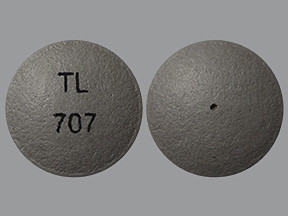
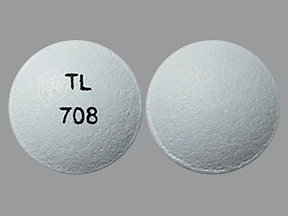
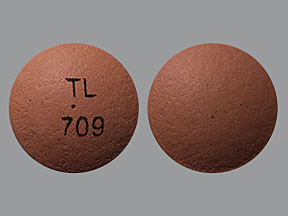

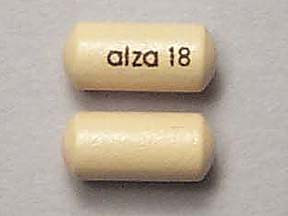
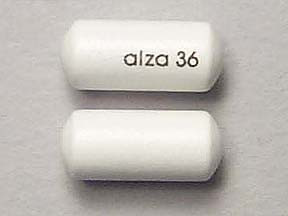
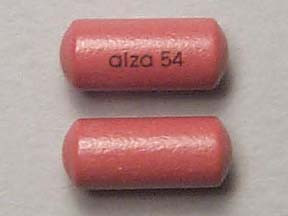
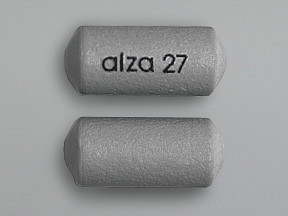
No Reviews Yet